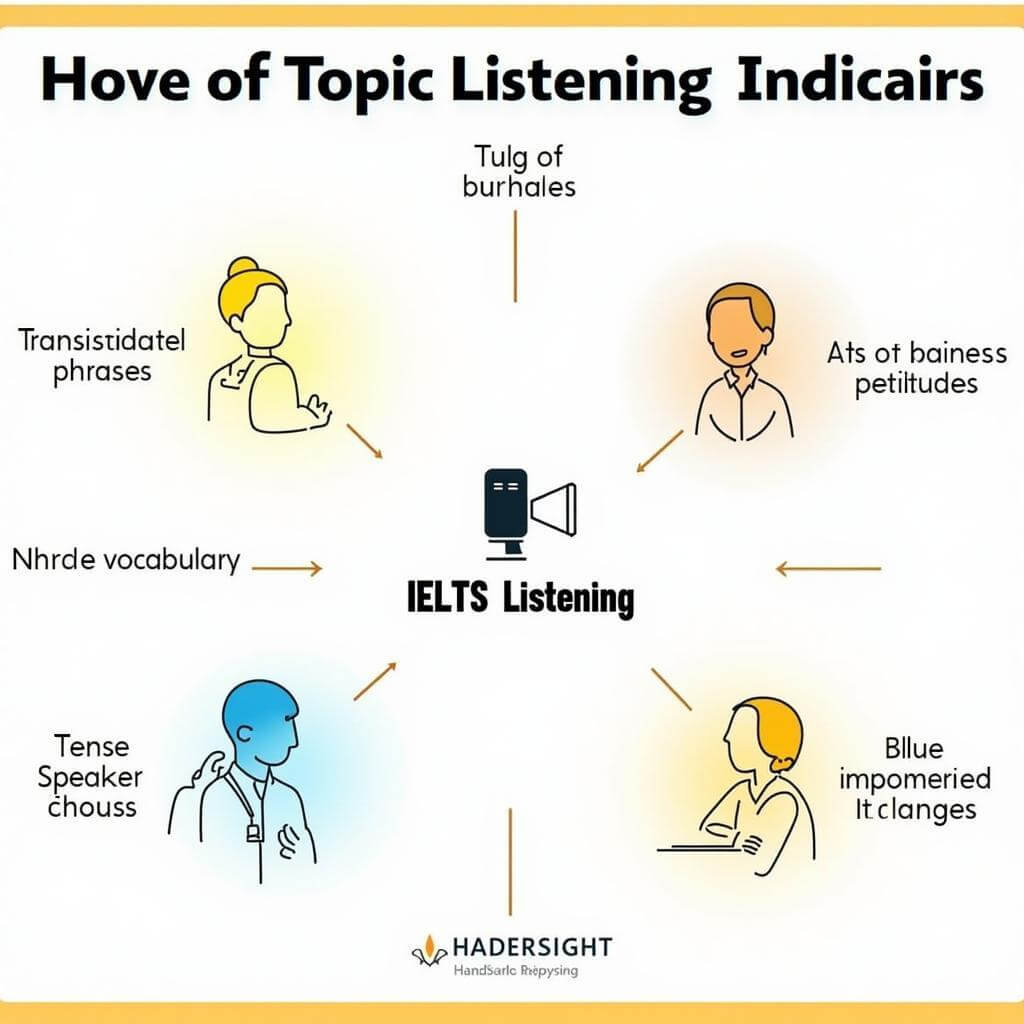Recognizing when a speaker changes topics is a crucial skill for success in the IELTS Listening test. This ability helps test-takers follow the conversation flow and accurately answer questions. In this article, we’ll explore effective strategies to identify topic shifts and improve your performance in the IELTS Listening section.
Understanding Topic Changes in IELTS Listening
Topic changes occur when speakers move from one subject to another during a conversation or monologue. In the IELTS Listening test, these transitions can be subtle or explicit, and recognizing them is essential for maintaining comprehension throughout the audio.
Common Indicators of Topic Changes
- Transitional phrases
- Pauses or changes in intonation
- Introduction of new vocabulary
- Shift in tense or perspective
- Change in speaker or turn-taking

Examples of Topic Change Indicators
To better understand how speakers signal topic changes, let’s look at some examples:
- “Moving on to our next point…”
- “Now, let’s discuss…”
- “Turning our attention to…”
- “On a different note…”
- “Shifting gears, we’ll now explore…”
- “Let’s consider another aspect…”
- “Changing the subject…”
- “In contrast to what we’ve discussed…”
- “That brings us to our next topic…”
- “Before we conclude, let’s address…”
These phrases act as verbal cues, alerting listeners to an impending topic change.
Applying Topic Change Recognition in IELTS Listening
In the IELTS Listening test, recognizing topic changes is particularly important in Sections 3 and 4, where academic discussions and lectures are common. Here’s how to apply this skill effectively:
1. Anticipate Topic Changes
Before the audio begins, quickly scan the questions to identify potential topics. This will help you anticipate when and how the speaker might transition between subjects.
2. Listen for Transitional Language
Pay close attention to phrases that signal a shift in focus. These often appear at the beginning of sentences or after a brief pause.
3. Note Changes in Context
Be alert to sudden changes in the context of the discussion. For example, a shift from discussing historical events to modern applications could indicate a topic change.
4. Identify New Vocabulary
The introduction of new terminology or a change in the semantic field often accompanies a topic change. Train yourself to recognize when the speaker begins using a different set of words related to a new subject.
Common Mistakes in Recognizing Topic Changes
Even experienced test-takers can make errors when identifying topic changes. Here are some common pitfalls to avoid:
- Misinterpreting examples as new topics
- Overlooking subtle transitions
- Focusing too much on individual words rather than overall context
- Failing to recognize topic changes in long monologues
- Confusing speaker changes with topic changes in conversations
Practice Techniques for Improving Topic Change Recognition
To enhance your ability to recognize topic changes, try these effective practice methods:
-
Active Listening Exercises: Listen to podcasts or academic lectures, focusing on identifying when and how topics change.
-
Transcript Analysis: Read transcripts of IELTS Listening tests while highlighting transitional phrases and topic shifts.
-
Topic Mapping: Create visual maps of conversations, noting where and how topics change.
-
Timed Practice: Set a timer and challenge yourself to quickly identify topic changes in sample IELTS audio materials.
-
Peer Discussion: Practice with a study partner, taking turns introducing topic changes in conversation and identifying them.
Conclusion
Recognizing speaker’s changing topics is a vital skill for excelling in the IELTS Listening test. By understanding common indicators, applying practical strategies, and avoiding typical mistakes, you can significantly improve your performance. Regular practice using the techniques outlined in this article will help you develop a keen ear for topic changes, ultimately boosting your IELTS Listening score.
Remember, mastering this skill not only benefits your IELTS performance but also enhances your overall English listening comprehension, a valuable asset for academic and professional success. Keep practicing, stay focused, and approach your IELTS Listening test with confidence!